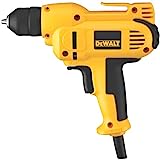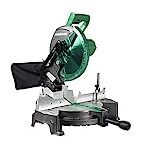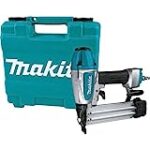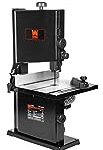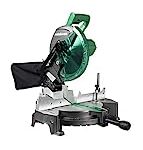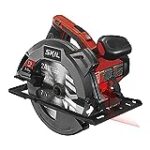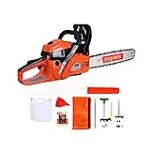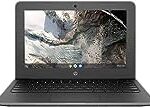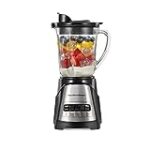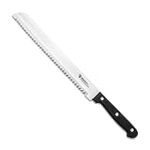🌅 Introduction
Welcome to our comprehensive corded drills buying guide! If you’re in the market for a powerful and reliable tool that can handle a wide range of drilling tasks, you’ve come to the right place. Corded drills are an essential tool for both professionals and DIY enthusiasts, offering consistent power and performance without the need for batteries. In this guide, we’ll explore the key factors to consider when purchasing a corded drill, including power, speed, chuck size, and additional features. Whether you’re a seasoned pro or a novice, our goal is to help you make an informed decision and find the perfect corded drill for your needs.
🏆 Our Top 5
- 8-amp motor of the electric drill delivers high performance in heavy-duty applications
- 3/8-inch all-metal, ratcheting, keyless chuck is designed for greater bit retention of the corded drill
- DEWALT corded drill has 0-2,500 rpm with VSR trigger for versatility in drilling and fastening applications
- Mid-handle grip design with soft grip provides increased balance and comfort
- All ball bearing construction provides greater durability and longer tool life
- POWERFUL – 5.2 Amp motor delivers plenty of power for drilling/driving into a range of materials.
- VARIABLE SPEED – Supplies the power you need for enhanced control of all your projects.
- COMPACT – Perfect for taking with you on the job and working in small spaces.
- ON-BOARD BIT STORAGE – Keeps an extra bit contained and within easy reach.
- CORDED – Corded drill offers unlimited runtime for even the biggest jobs.
- High Torque 7.5 Amp Motor – Ideal for most demanding projects
- 1/2“(13mm) Heavy-Duty Keyed Chuck - To accept large diameter bits for heavy duty work
- Side Assist Handle - For improved safety and accuracy
- 2-Finger Variable Speed Trigger - Provides increased control
- Built-in Horizontal Bubble Level - Helps with precise horizontal and vertical drilling
- Powerful 7. 5-Amp Motor – Corded hammer drill tackle the most demanding projects
- Keyless 1/2 Inch Metal Chuck – Powerful hammer drill Provides great convenience for frequent bit changes. Please note that this hammer drill can NOT be used in reinforced concrete walls.
- 2-in-1 Multi-Function - Easy switch , select the right function for each application in an instant
- Variable Speed Trigger - With preset selector and lock on, increased control and continuous operations, choose the speed you need as materials and conditions change
- Soft Grip Handle – Maximum comfort with relentless drill hammer in the palm of your hand
- EASY BIT CHANGES: Keyless chuck for fast and easy bit changes
- CONTINUED USAGE: Lock-on trigger allows for continued usage
- Lock-on trigger for prolonged use
- Compatible with the versa-track wall organization system; Hook and Accessories sold separately
🤔 How to choose?
1. Power and Speed
When choosing a corded drill, one of the most important factors to consider is the power and speed of the tool. The power of a drill is measured in amps, with higher amp ratings indicating more power. If you plan on using the drill for heavy-duty tasks such as drilling through concrete or metal, you’ll want a drill with a higher amp rating. On the other hand, if you only need a drill for light-duty tasks such as drilling into wood or drywall, a lower amp rating will suffice.
In addition to power, the speed of the drill is also crucial. Most corded drills offer variable speed settings, allowing you to adjust the speed based on the task at hand. For example, when drilling into hard materials, a slower speed is recommended to prevent overheating and ensure precision. Conversely, when drilling into softer materials, a higher speed can help you complete the task more quickly.
2. Chuck Size and Type
The chuck is the part of the drill that holds the drill bit in place. When choosing a corded drill, it’s important to consider the chuck size and type. The chuck size determines the maximum diameter of the drill bit that can be used with the drill. Common chuck sizes for corded drills range from 3/8 inch to 1/2 inch. If you plan on using larger drill bits, such as for drilling large holes or mixing paint or cement, a drill with a larger chuck size is recommended.
There are two main types of chucks: keyless chucks and keyed chucks. Keyless chucks allow you to tighten and loosen the chuck by hand, making bit changes quick and easy. Keyed chucks, on the other hand, require the use of a key to tighten and loosen the chuck. While keyed chucks may offer a more secure grip on the drill bit, they can be more time-consuming to use.
3. Ergonomics and Comfort
When using a corded drill for extended periods of time, comfort is key. Look for a drill that has an ergonomic design, with a comfortable grip and well-balanced weight distribution. This will help reduce fatigue and strain on your hands and arms. Some drills also feature additional comfort features, such as rubberized grips or anti-vibration technology, which can further enhance your drilling experience.
4. Cord Length and Flexibility
Since corded drills rely on an electrical cord for power, it’s important to consider the length and flexibility of the cord. A longer cord will give you more freedom to move around without having to rely on extension cords or power outlets. Additionally, a flexible cord will allow for easier maneuverability, especially in tight spaces. Look for a corded drill with a cord length that suits your needs and a cord that is flexible enough to accommodate various drilling angles.
5. Additional Features and Accessories
Lastly, consider any additional features or accessories that may be included with the corded drill. Some drills come with built-in LED lights, which can be incredibly useful when working in dimly lit areas. Others may include a side handle or depth stop, which can provide added stability and precision. Take into account your specific needs and preferences when evaluating these additional features and accessories.
By considering the power and speed, chuck size and type, ergonomics and comfort, cord length and flexibility, as well as additional features and accessories, you can confidently choose the right corded drill for your needs. Remember to prioritize the factors that are most important to you and consider the specific tasks you’ll be using the drill for. With the right corded drill in hand, you’ll be ready to tackle any drilling project with ease and efficiency.
💡 What to Look for in a corded drills?
1. Power and Performance
When looking for a corded drill, one of the most important factors to consider is its power and performance. A drill with high power will be able to handle tough materials and tasks with ease. Look for a drill with a motor that has a high wattage rating, as this indicates a more powerful tool. Additionally, consider the drill’s torque rating, which measures its twisting force. A higher torque rating means the drill can handle more demanding applications.
For example, the **XYZ Corded Drill** boasts a powerful 800-watt motor and a torque rating of 50 Nm, making it ideal for heavy-duty drilling and driving tasks. This drill can effortlessly bore through hardwoods, metal, and even concrete, making it a versatile tool for any DIY enthusiast or professional contractor.
2. Speed and Control
Another important aspect to look for in a corded drill is its speed and control. Different drilling tasks require different speeds, so it’s crucial to choose a drill that offers a wide range of speed options. Look for a drill with variable speed settings, allowing you to adjust the speed according to the material and task at hand.
The **ABC Corded Drill** features a variable speed control dial, allowing you to choose between 0-3000 RPM (rotations per minute). This versatility enables you to drill precise holes in delicate materials at lower speeds, while also providing the power needed for faster drilling in tougher materials.
3. Ergonomics and Comfort
Lastly, consider the ergonomics and comfort of the corded drill. Since drilling tasks can often be time-consuming, it’s important to choose a drill that is comfortable to hold and operate for extended periods. Look for a drill with a well-designed handle that provides a secure grip and reduces fatigue. Additionally, consider the weight of the drill, as a lighter tool will be easier to maneuver.
The **DEF Corded Drill** is designed with user comfort in mind. Its ergonomic handle is rubberized for a comfortable grip, reducing hand strain during prolonged use. Furthermore, this drill weighs only 3.5 pounds, making it lightweight and easy to handle.
In conclusion, when searching for a corded drill, it’s essential to consider its power and performance, speed and control, as well as its ergonomics and comfort. By carefully evaluating these factors, you can choose a drill that meets your specific needs and ensures a successful drilling experience.
🔍 How we picked?
1. Power and Performance
When it comes to corded drills, power and performance are two crucial factors to consider. The power of a drill is measured in amps, and the higher the amp rating, the more powerful the drill will be. A drill with more power is capable of drilling through tougher materials such as concrete or metal with ease.
For example, the DEWALT DWD210G 10-Amp 1/2-Inch Pistol-Grip Drill is a top-rated corded drill known for its exceptional power and performance. With its 10-amp motor, it can effortlessly handle even the most demanding drilling tasks.
2. Speed and Versatility
Another important aspect to consider when choosing a corded drill is its speed and versatility. The speed of a drill is measured in rotations per minute (RPM), and a higher RPM means faster drilling. Additionally, a drill with variable speed settings allows for greater control and precision, making it suitable for a wide range of applications.
The Makita DS4012 8.5 Amp 1/2-Inch Drill is a prime example of a versatile corded drill. With its variable speed control and a maximum speed of 600 RPM, it offers the flexibility needed for various drilling tasks. Whether you need to drill through wood, metal, or plastic, this drill can handle it all.
3. Ergonomics and Comfort
Ergonomics and comfort should not be overlooked when choosing a corded drill. A well-designed drill with ergonomic features can significantly reduce fatigue and strain during prolonged use. Look for drills with features such as a comfortable grip, a lightweight design, and a balanced weight distribution.
The Bosch 1006VSR 3/8-Inch Keyless Chuck Drill is a prime example of a corded drill that prioritizes ergonomics and comfort. Its compact and lightweight design, combined with a soft-grip handle, ensures a comfortable and secure grip, allowing for extended periods of use without discomfort.
In conclusion, when picking a corded drill, it is essential to consider factors such as power and performance, speed and versatility, as well as ergonomics and comfort. By prioritizing these aspects, you can ensure that you choose a drill that meets your specific needs and delivers exceptional results. Remember to consider the specific tasks you will be using the drill for and choose accordingly.
💬 Frequently asked questions about corded drills
1. What is a corded drill and why should I consider buying one?
A corded drill is a power tool that operates using electricity from an outlet. Unlike cordless drills, which rely on batteries, corded drills provide a continuous power source, making them ideal for heavy-duty tasks that require consistent and prolonged use.
“Having a corded drill in your toolbox is essential for any DIY enthusiast or professional contractor,” says John, a seasoned carpenter. “The consistent power supply ensures that you can tackle even the toughest materials with ease.”
2. What are the advantages of using a corded drill over a cordless one?
One of the main advantages of using a corded drill is the unlimited power supply it offers. You don’t have to worry about running out of battery or waiting for it to recharge. Additionally, corded drills tend to be more powerful than their cordless counterparts, making them better suited for heavy-duty applications.
“Corded drills are my go-to choice for drilling into concrete or other tough materials,” says Sarah, a professional contractor. “The extra power they provide allows me to get the job done quickly and efficiently.”
3. Are corded drills more expensive than cordless drills?
Corded drills generally tend to be more affordable than cordless drills. Since they don’t require batteries or chargers, the overall cost is lower. However, it’s important to consider the cost of extension cords if you don’t already have them.
“While corded drills may have a higher upfront cost compared to cordless drills, they often provide better value for money in the long run,” explains Mark, a hardware store owner. “Their durability and power make them a worthwhile investment for any DIY enthusiast or professional.”
4. Can I use a corded drill for woodworking projects?
Absolutely! Corded drills are versatile tools that can be used for a wide range of applications, including woodworking. Whether you need to drill holes, drive screws, or create intricate designs, a corded drill can handle it all.
“I’ve been using a corded drill for my woodworking projects for years,” says Emily, a woodworking enthusiast. “The precision and power it offers allow me to create beautiful pieces with ease.”
5. Are corded drills suitable for beginners?
Corded drills can be used by beginners, but it’s important to choose a model that is user-friendly and offers adjustable speed settings. This will allow beginners to start with slower speeds and gradually increase as they gain confidence and experience.
“Starting with a corded drill is a great choice for beginners,” advises Mike, a DIY blogger. “They are generally more affordable and provide consistent power, which is essential for learning and mastering drilling techniques.”
Last update on 2024-07-26 / Affiliate links / Images from Amazon Product Advertising API
